| | China’s AFCON assist, Aliou Cissé, TV rights, African champions ͏ ͏ ͏ ͏ ͏ ͏ |
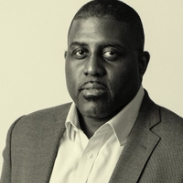 | Yinka Adegoke |
|
Hello! Welcome to Semafor Africa Weekend, where I’ve spent the last couple of days listening to groundbreaking ideas at the DLD Conference in Munich, Germany. It’s been exhilarating to explore a wide range of topics from AI and European space programs to biodiversity and the future of democracy. But what’s been refreshing here, aside from the brisk air, has been the presence of several leading thinkers from Africa. These included Nigerian banker Herbert Wigwe who, on a panel I moderated, expanded on an essay he penned for us about tackling brain drain from the continent. I also enjoyed listening to Farmerline’s Alloysius Attah discuss his ambitions to take his Ghana-based agri-tech startup, which already has 2.2 million farmers on its digital platform across West Africa, to more than 15 million by 2030. Attah told me afterwards that it was important for African companies like his to frame themselves for the global stage and not just in their regional or even continental markets. “Africa has 60% of the world’s arable land and the world’s youngest demographics; serving the world’s market should be the norm for us,” he said. For Attah, it’s not just a worthy ambition but an intentional mindset shift to ensure businesses like his don’t get positioned simply as potential grant recipients, or as a sustainability list checkbox. The focus has to be on the huge opportunity. That’s the best way to build a business that might one day have any hope of competing with the multibillion-dollar European and North American companies that dominate the global food supply chain. 🟡 I’m now off to the World Economic Forum in Davos a few hours drive away. I’m looking forward to meeting some of you there this week. Reply to this newsletter if you’d like to have coffee or exchange tips. And, sign up for our must-read daily Davos newsletter!  The figure Togolese broadcaster New World TV paid for the rights to AFCON and 12 other Confederation of African Football (CAF) tournaments over two years. CAF President Patrice Motsepe described it as “the biggest investment by a Pan-African broadcaster in CAF’s history.” MultiChoice, Africa’s largest pay TV company, reportedly balked at the price. The South African company announced on Jan. 3 that it would not be airing AFCON after failing to secure the rights, but in a last-minute reversal struck what it called a “commercially viable” deal with New World TV. The agreement announced on Jan. 10 will see all 52 matches in Cote d’Ivoire broadcast on SuperSport. |
|
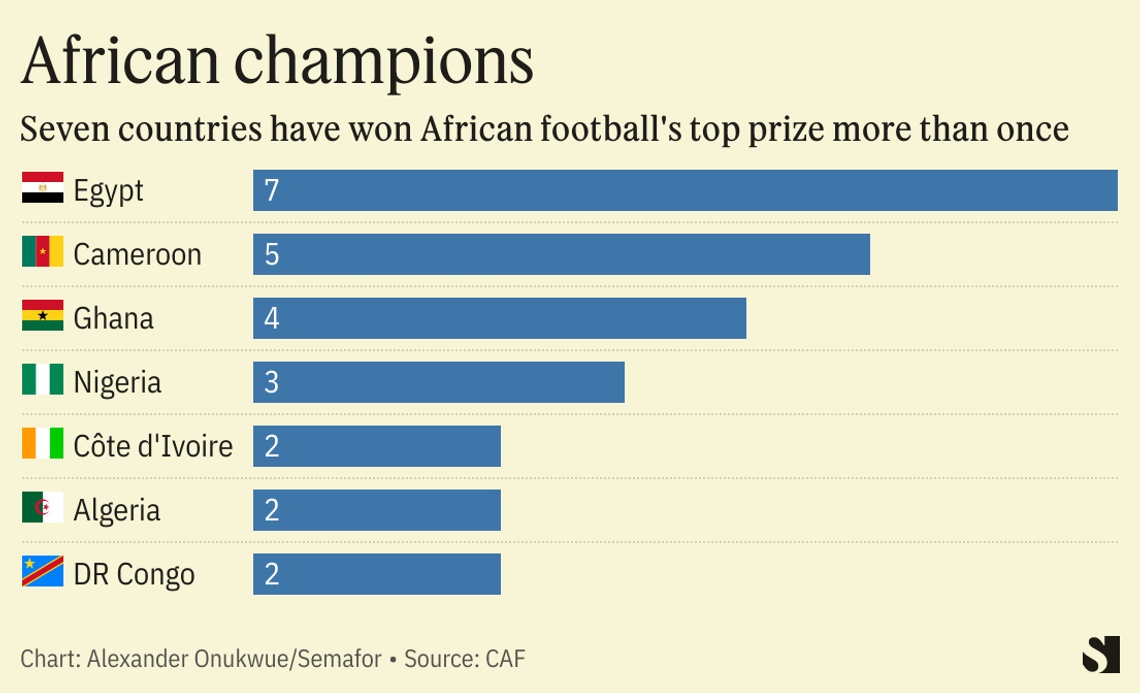 Senegal is aiming to be the first country since Egypt in 2010 to retain the African Cup of Nations. The West Africans have won the tournament just once, as have South Africa and Morocco. By contrast, seven nations have won the continent’s top football honor more than once. All seven are competing for this year’s prize in Côte d’Ivoire. |
|
China’s multiyear AFCON assists |
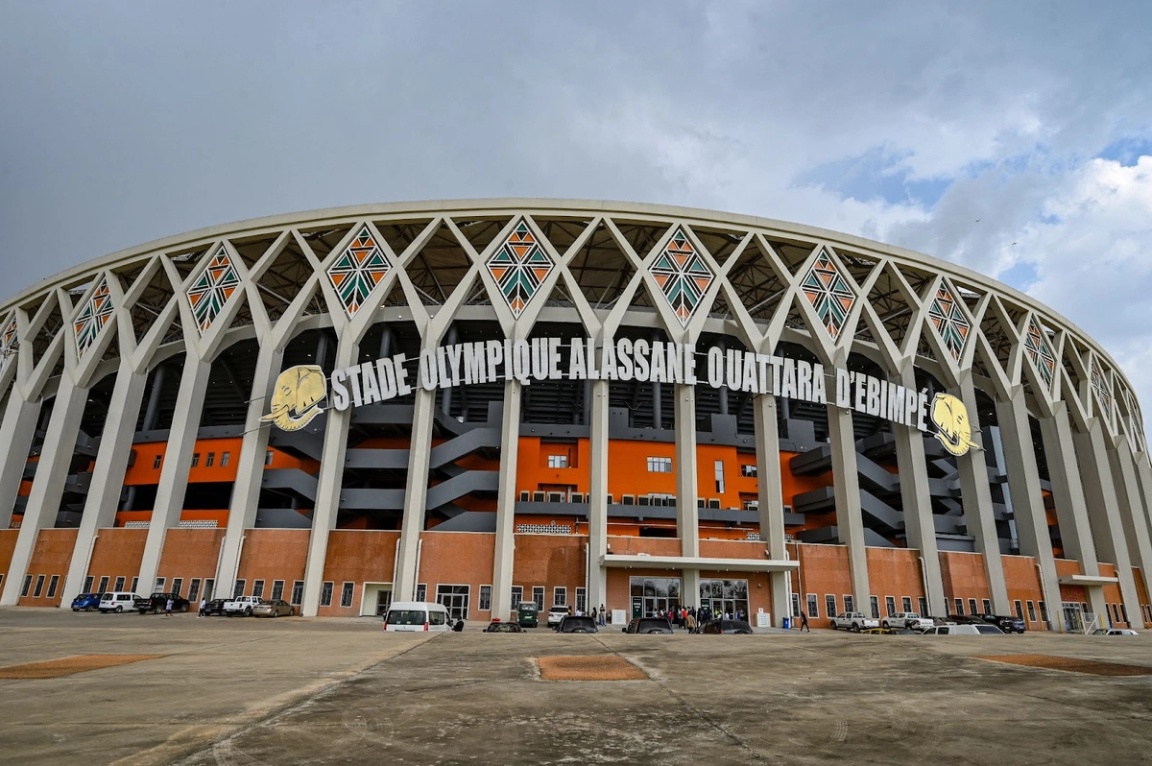 Sia Kambou/AFP via Getty Images Sia Kambou/AFP via Getty ImagesOn Saturday, AFCON kicked off between hosts Côte d’Ivoire and Guinea Bissau at the 60,000-capacity Alassane Ouatarra stadium in Abidjan. Opened in 2020, the stadium is one of six venues hosting AFCON matches. It also happens to be among three AFCON venues built with Chinese support. The Alassane Ouattara stadium, also known as the Olympic Stadium of Ebimpé, was designed and built by two Chinese state entities — the Beijing Institute of Architectural Design and the Beijing Construction Engineering Group respectively. The 20,000-capacity Laurent Pokou Stadium in San-Pédro, in southwestern Côte d’Ivoire, was built by the China Civil Engineering Construction Corporation. And China National Building Material Group was the general contractor for the 20,000-capacity Amadou Gon Coulibaly Stadium in Korhogo, in the north of the country, which will host Group D matches. China has supported the construction of stadiums used in previous AFCON editions including Angola in 2010, Gabon and Equatorial Guinea between 2012 and 2017. African leaders typically seek Chinese support on stadium construction in hopes of accelerating the development of sports infrastructure in their countries and to enable them to host major sporting events including AFCON. Their aim is to boost their profiles while also endearing themselves to football-loving citizens. There is also the expectation that local infrastructure built for tournaments such as the road networks connecting the stadiums to the cities will positively impact communities and economies long after the tournaments are done. Côte d’Ivoire, for instance, has spent more than $1 billion on the continental showpiece, according to reported estimates, with Ebimpé alone costing comfortably over $250 million. Justifying the investment, Francois Amichia, head of the country’s Nations Cup organizing committee, said that among the benefits was “repositioning” Côte d’Ivoire, which has been steadily rebuilding its economy since the end of the 2011 civil war. — Martin K. N. Siele |
|
Osasu Obayiuwana is a British-Nigerian journalist who has reported on African football for over 30 years for outlets including the BBC and The Guardian. He messaged us on the opening day of AFCON in Abidjan. 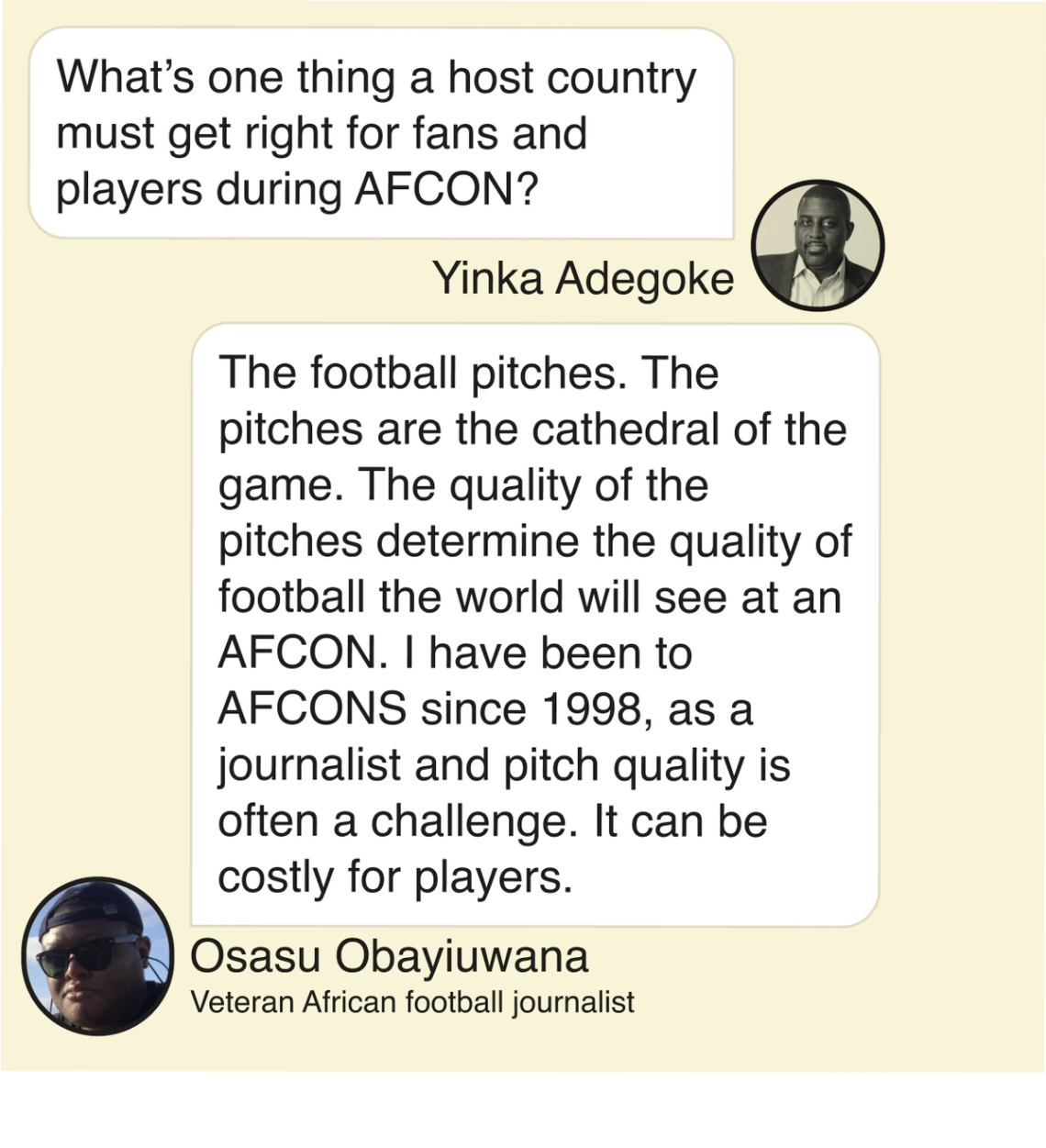 |
|
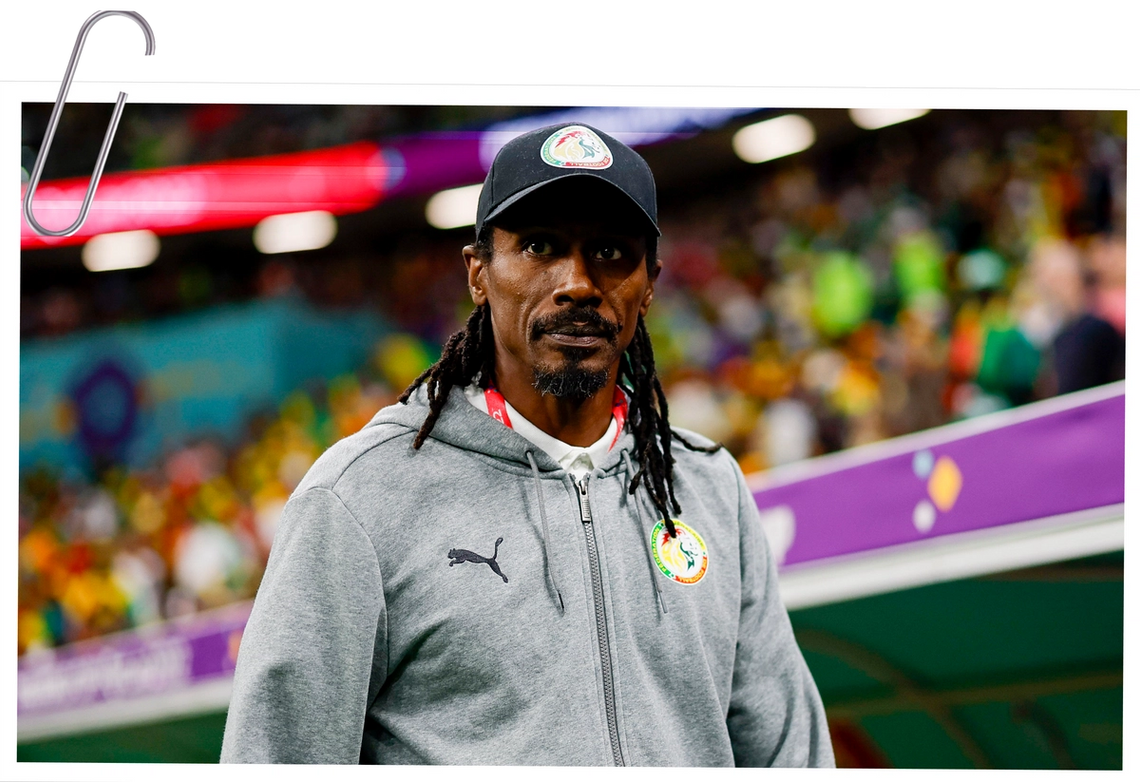 Manuel Reino Berengui/DeFodi Images via Getty Images Manuel Reino Berengui/DeFodi Images via Getty ImagesOn Monday when Senegal begins its Africa Cup of Nations title defense against neighbors Gambia, coach Aliou Cisse will be aiming to mastermind what no team has done since Egypt dominated the continent in 2006, 2008 and 2010. Cisse’s Teranga Lions have a spine composed of some of the best players in the world. The forward department is led by Sadio Mane of Bayern Munich. Edouard Mendy, the world’s best goalkeeper a few years ago, should be in goal. But first-rate players account for only half the success story of Senegalese football in the last half decade. Cisse, many have said, made the structure possible. Following his appointment in March 2015, the 47-year-old began building one of Africa’s best teams. Senegal qualified for the 2018 World Cup in Russia and in Qatar four years later, the first time the West Africans were in consecutive World Cups. Even a heartbreak in between — losing the 2019 AFCON final to Algeria — was a win for a country that had, for decades, been one of African football’s underachievers. Winning the tournament in 2022 for the first time (at the 16th attempt) evoked nostalgia for Senegal’s class of 2002, when a Cisse-captained team at their first World Cup reached the quarterfinals, slaying then-champions France along the way. There has been less romance in the air going into this AFCON in Côte d’Ivoire. Cisse is being asked to evolve more expressive tactics while still winning. And just last month there were rumbles over €180,000 in unpaid salary which could upset his relationship with the Senegalese football authorities. Yet, Cisse is one of only three coaches at these games who knows how to win it (Hugo Broos with Cameroon in 2017, and Djamel Belmadi with Algeria in 2019). Should Senegal repeat the ultimate feat of 2022, it would be the making of a new chapter in his growing legend. — Alexander Onukwue |
|
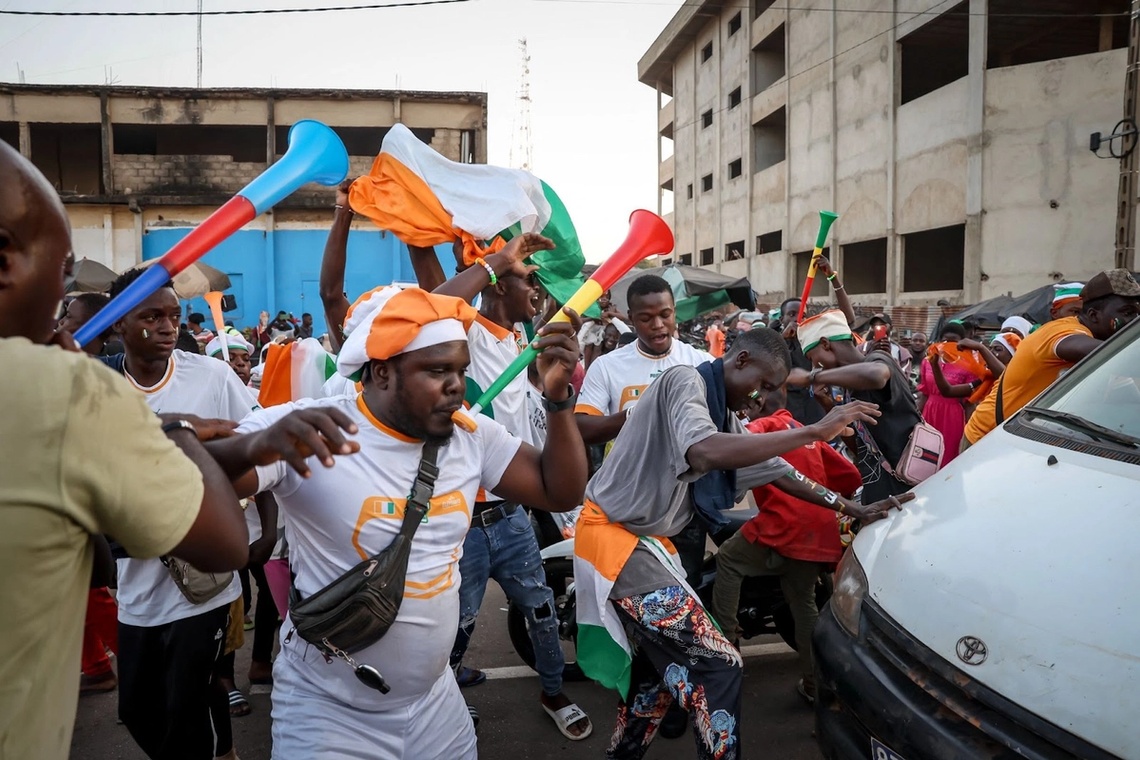 Fadel Senna/AFP via Getty Images) Fadel Senna/AFP via Getty Images)🇨🇮 Côte d’Ivoire is staging an Africa Cup of Nations which is no longer just an African tournament but a global event, explains The Guardian. Four of its neighbors — Guinea, Ghana, Mali and Burkina Faso — are playing at the tournament and there is visa-free entry for their fans which probably means this year’s competition will have a much larger international fan presence than the last tournament in Cameroon. 🌍 Basketball Africa League (BAL), the NBA’s only professional league outside the United States, faces mounting losses and is struggling to grow its fanbase after three seasons, write Loni Prinsloo and Katarina Hoije for Bloomberg. The league is forecast to post a $19 million loss in the 2024 financial year. Highlighting the challenge of increasing the pan-African league’s popularity, the report notes that BAL has at times been forced to bus in fans for games. 🇲🇱 France lobbied the United States for support in installing a preferred successor to Mali’s ousted pro-French leader, President Ibrahim Boubacar Keïta, who was toppled in August 2020. Gabriele Steinhauser and Noemie Bisserbe write in the Wall Street Journal of a previously unreported September 2020 meeting — during which the U.S. officials declined to offer support. The attempt by France reflects its fallout with former colonies and the disdain of various local stakeholders, claims the Journal. 🇳🇬 Nigeria’s minister of digital economy Bosun Tijani represents the revolution in deepening Africa’s most populous country’s technology ecosystem, writes Adaobi Tricia Nwaubani for Rest of World. But his transition from one-time rock star in the startup scene to government has been controversial, she notes in a profile which discusses how he comes into the role at a challenging time as the tech sector is experiencing a downturn and layoffs. |
|
🗓️ China’s foreign minister Wang Yi is on a four-nation African tour, in his first overseas trip of the year. He will visit Egypt, Tunisia, Togo and Cote d’Ivoire. (Jan. 13-18) 🗓️ Semafor Africa will be on the ground at the World Economic Forum in Davos, Switzerland, covering what’s happening on the main stages and lifting the curtain on what’s happening behind them. Sign up for our Davos daily newsletter. (Jan. 14-19) 🗓️ Comoros will vote in a presidential election today — Africa’s first election of the year — during which nearly 340,000 voters are expected to cast their ballots. The incumbent head of state and African Union President, Azali Assoumani, is seeking re-election, even as opposition figures call for a boycott. (Jan. 14) 🗓️ Sierra Leone’s ex-President Ernest Bai Koroma will appear before court on Wednesday when his trial begins. He was charged with treason over his alleged involvement in a failed attempt by security forces to overthrow the government in November. (Jan. 17) 🗓️ The Intergovernmental Authority on Development (IGAD) East African regional bloc will convene in Kampala, Uganda, for an extraordinary summit on Thursday to discuss the volatile relations between Ethiopia and Somalia. (Jan.18) |
|
 If you’re enjoying the Semafor Africa newsletter and finding it useful, please share with your family, friends, soccer pitch groundsmen, and football widows. We’d love to have them aboard, too. Let’s make sure this email doesn’t end up in your junk folder by adding africa@semafor.com to your contacts. In Gmail you should drag this newsletter over to your ‘Primary’ tab. You can reply to this email and send us your news tips, gossip, street food recommendations and good vibes. — Yinka, Alexis Akwagyiram, Alexander Onukwue, Martin Siele, and Muchira Gachenge |
|
| |








